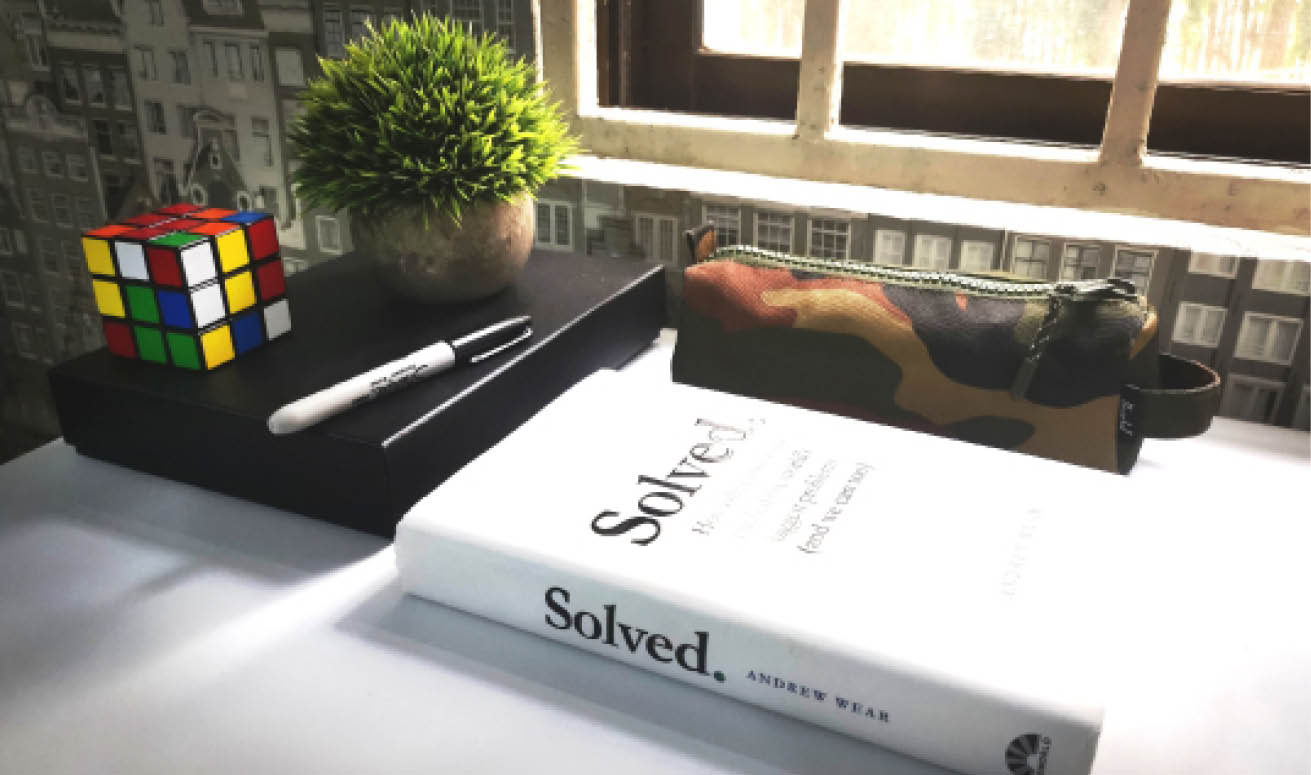Column No.6: Can a book solve the world’s problems?
Of course the question that makes up the title of this week’s piece is being asked figuratively, after I finished racing through a new book I bought recently called ‘Solved’, released in September 2021. The 49-year-old author, Andrew Wear, has degrees in politics, law, economics, and public policy, while he also has in his bio […]

Of course the question that makes up the title of this week’s piece is being asked figuratively, after I finished racing through a new book I bought recently called ‘Solved’, released in September 2021. The 49-year-old author, Andrew Wear, has degrees in politics, law, economics, and public policy, while he also has in his bio extensive academic achievements. Picking up the book was easy, thanks to the subtitle – ‘How Other Countries Cracked the World’s Biggest Problems (And We Can Too)’ – which came across as audacious, and only pushed me to buy and read it.
Points immediately made on the dust jacket include the following: “Sometimes the solutions are closer than we think. Denmark is set to achieve 100 per cent renewable energy by 2030. Iceland has topped the gender equality rankings for a decade and counting. South Korea’s average life expectancy will reach ninety due to diet and world-class healthcare. The homicide rate in Britain is the lowest in the OECD. Singapore blitzes other developed nations in world education rankings. Phoenix, Arizona, has reinvented itself as a smart city.”
It continued: “How have these places and more achieved such remarkable outcomes? Public policy adviser Andrew Wear examines what has proven successful around the world, and how we can apply the lessons from these innovative case studies in our own country. Through his research, we meet inspiring community leaders, world-renowned authorities and government policy-makers leading the globe in change.”
By the time I read its offer that we don’t have to look far to tackle humanity’s most pressing concerns, and its declaration that it is a book that is a much-needed dose of optimism in an atmosphere of doom and gloom, and a toolkit for those looking for social change, I was hooked. Finally, pondering the claim that it will show that solutions exist – and that we just need to know where to look – I whipped out my debit card and purchased it.
Now, the obvious fact is being Nigerian, anything that offers to solve large-scale problem will immediately pique my interest. I began to read it one late evening, and ended up staying awake till the wee hours of the morning, before dropping it, only to pick it up a few hours later and continue. Now do not get this wrong: This is not a review. The honest truth is I am not sure what this is, either. But I have a feeling that at the conclusion next week, both you the reader, and I, would have made up our minds what label to use. Let us go back to the book’s contents, then.
It would not be unfair or inaccurate to say that this book has rather lofty ambitions. But if you are Superman, and feel the constant need to save the world, it appears to be well-positioned as a manual of sorts. I am sure many leaders of third world countries will feel targeted, but I think they should not – and simply embrace the book. It’s not a map or a to-do list, mind you, but rather a bevy of successful examples, and how they were successfully carried out. Practical inspiration, if you will.
‘Solved’, the book itself much like Superman, addresses a good number of problems being faced by nations today, and then tells us how a specific one has addressed said problem. While there is no doubt that many of the solutions are good, none of them are being touted as perfect. One of such imperfect ones I found is the Singapore example, wherein Wear claims the nation is the epitome of education, forgetting that that country is reported to have students who are highly stressed due to an (unrealistically?) over-packed curriculum.
Then, interestingly, after a long time of coming across claims by many a politician that higher taxes mean a suffering economy, I felt a bit justified in my mind-set that that is not necessarily accurate. The truth is, if imposed, monitored and enforced properly, it would almost certainly result in greater social equality. An observation which immediately makes this book one I would like to buy and send to many Nigerian (ahem) leaders, if I could afford to.
As we pause here, I am sure some readers are wondering if this incredibly ambitious book is one I would recommend to President Muhammadu Buhari and his ministers, or every single Nigerian governor (though I have a strong suspicion that Borno’s Zulum and Kaduna’s El-Rufai might have both read it). Well, you would have to wait till next week, when I conclude this piece with a good chunk of my thoughts on Wear’s insightful book.
(Concluded next week)
